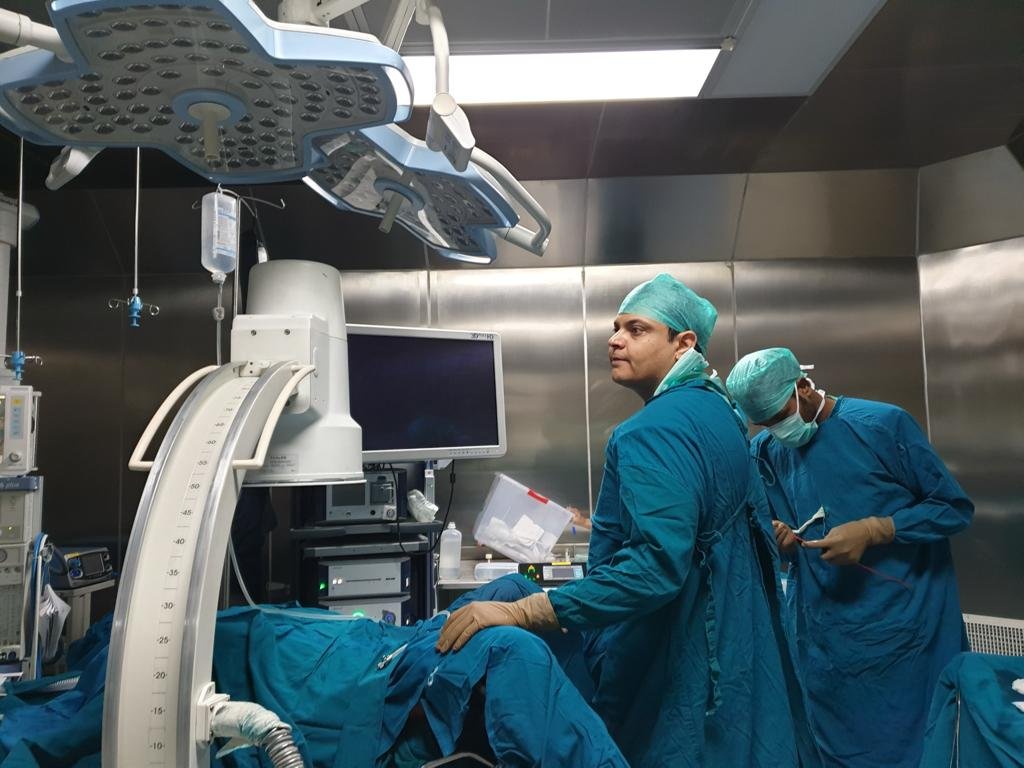Endoscopy and Laser Surgeries
We heal with the latest innovations in Urology.
Understanding Endoscopy
Endoscopy and laser surgeries are advanced medical techniques used to diagnose and treat various health conditions. Endoscopy involves using a flexible tube with a camera to look inside the body, while laser surgery uses focused light to perform precise medical procedures.
What is Endoscopy ?
In robotic surgery, Endoscopy is a procedure that allows doctors to see inside the body without making large incisions. An endoscope, a thin, flexible tube with a light and camera, is inserted through a natural opening like the mouth or rectum. This helps doctors diagnose conditions such as gastrointestinal issues, respiratory problems, and more.
Types of Endoscopic Procedures
Cystoscopy
-
Used to examine the bladder and urethra.
-
Helps diagnose conditions like bladder tumors, urinary tract infections, and bladder stones.
Ureteroscopy
-
Used to examine the ureters and kidneys.
-
Helps diagnose and treat kidney stones, tumors, and strictures.
Nephroscopy
-
Used to examine the interior of the kidneys.
-
Helps in diagnosing and treating kidney stones and other kidney-related issues.
What is Laser Surgery?
Laser surgery involves using focused light beams to remove or treat abnormal tissues. In urology, lasers are often used to treat conditions like kidney stones, enlarged prostate, and tumors.
Common Laser Procedures
Laser Lithotripsy
-
Used to break up kidney stones into smaller pieces that can be passed naturally.
-
Minimally invasive with a quick recovery time.
Laser Prostate Surgery
-
Used to treat benign prostatic hyperplasia (BPH).
-
Involves removing excess prostate tissue to improve urine flow.
Laser Tumor Removal
-
Used to remove tumors from the bladder, urethra, or kidneys.
-
Offers precision and reduces damage to surrounding tissues.
Laser Prostate Surgery
-
Used to treat benign prostatic hyperplasia (BPH).
-
Involves removing excess prostate tissue to improve urine flow.
Benefits of Endoscopy and Laser Surgeries
-
Minimally Invasive:
Smaller incisions lead to less pain and quicker recovery.
-
Precision :
High accuracy in diagnosing and treating conditions.
-
Reduced Complications :
Lower risk of infections and other post-surgery issues.
-
Shorter Hospital Stay :
Many procedures are done on an outpatient basis.
